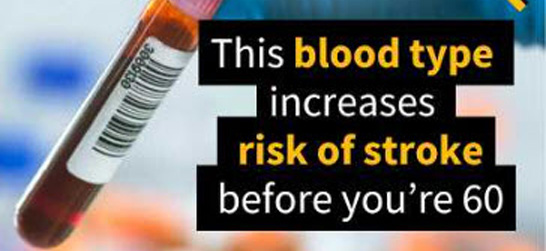A recent meta-analysis which has just been published in the journal Neurology. has brought to light a fascinating association between blood type and the risk of early-onset stroke… a condition affecting individuals under the age of 60. While much is known about the risk factors for stroke in older adults, the causes in younger populations are less understood, making this new insight a promising step forward in preventive medicine.
The study, which compiled data from 48 genetic studies involving nearly 17,000 stroke patients and over 600,000 healthy controls, revealed that individuals with the A1 subgroup of blood type A have a 16% higher risk of experiencing an early-onset stroke. This finding was particularly pronounced in the younger adult group, suggesting that genetic factors related to blood type may play a more significant role in early-onset stroke compared to strokes that occur later in life.
Conversely, the research offered some reassuring news for those with blood type O; the meta-analysis found that individuals with blood type O have a slightly lower risk of stroke. Researchers hypothesise that this may be due to blood type O having lower levels of clotting factors, like von Willebrand factor and factor VIII, which could provide a protective effect against unwanted blood clots.
It is crucial to interpret these findings with a degree of caution. While the link is statistically significant, the increased risk is modest, and individuals with type A blood should not be alarmed. This is not a deterministic finding, and lifestyle factors remain the dominant force in overall stroke risk. Modifiable risk factors, such as managing blood pressure, maintaining a healthy weight, exercising regularly and avoiding smoking, have a far greater impact on your risk profile.
The biological mechanisms behind this association are still under investigation. Researchers speculate that differences in blood-clotting factors, platelets and other circulating proteins related to blood type might be at play. This new piece of the puzzle, however, opens new avenues for research into the unique pathology of early-onset stroke, a condition that deserves more scientific attention.



